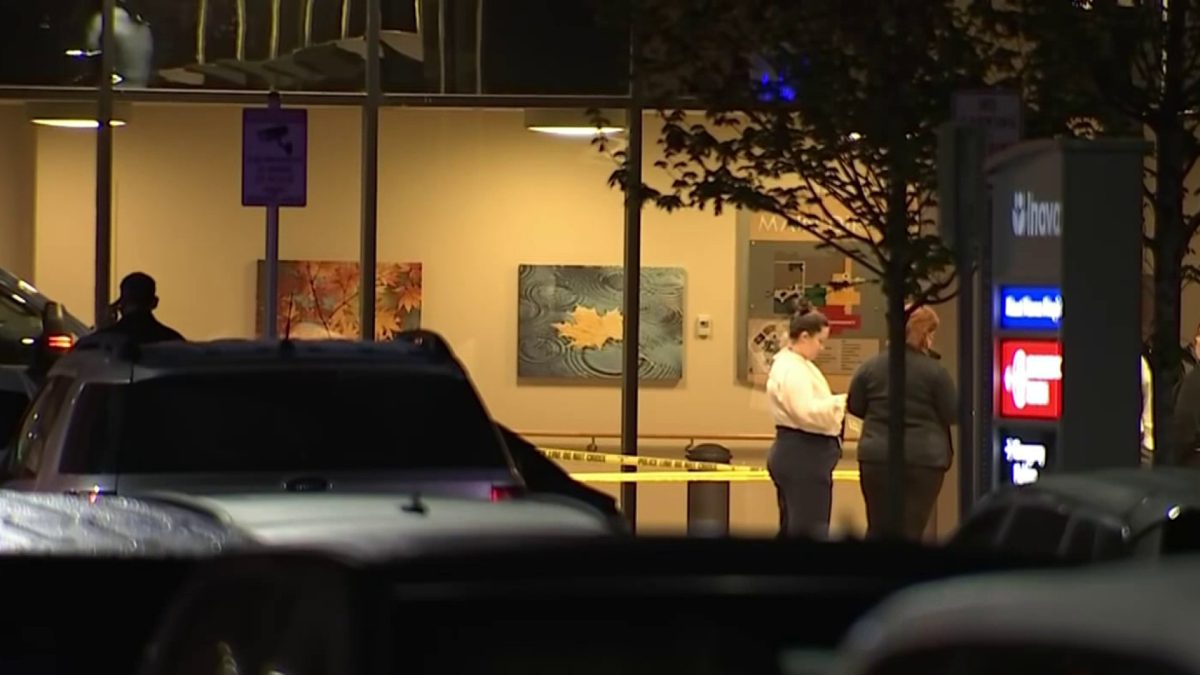Harry Jaffe, a longtime chronicler of the people and politics of Washington, D.C., writes a column for NBC Washington's First Read DMV blog.
UPDATE:
The D.C. Council today congratulated itself on first passage of the District’s largest budget ever, with little change from Mayor Muriel Bowser’s $14 billion proposal. The council preserved $100 million in tax cuts but shifted more funds to public schools. Chairman Phil Mendelson said the council had approved 98 percent of Bowser’s request.
But echoing Friday’s “First Read” column below, Mendelson urged his colleagues to consider what sounded suspiciously like return on investment, or ROI.
“We can celebrate our spending plan, but it is equally important that these tax dollars be spent wisely,” Mendelson added. “Throwing more at problems does not necessarily solve them, and spending carefully and effectively does mean each dollar goes farther. It is on us, the Council, through our oversight powers, to press for careful and effective spending.”
---
On Thursday, D.C. Councilmembers gathered for one of their favorite endeavors: spending your money. Amid much rhetorical backslapping, the 13 legislators discussed how to divvy up what is by far the biggest budget in District history, at just south of $14 billion.
Local
Washington, D.C., Maryland and Virginia local news, events and information
What they failed to do – indeed what they never do – is consider in any way, shape, or form whether the billions they disburse will have any impact, change any lives, educate kids, heal the sick or house the homeless.
“Accountability does not exist,” says longtime Councilmember Jack Evans.
“There is absolutely no oversight,” says a veteran budget analyst in the Wilson Building.
D.C. Auditor Kathy Patterson, who served on Council for 12 years, has begun to follow funds to nowhere in her new capacity. “It’s time to measure outcomes,” she tells me. “Put money in to programs based on performance, department by department, program by program.”
Accountability. Oversight. Outcomes. Three words that rarely came up during Thursday’s giddy, marathon budget session.
Having witnessed this annual ritual for decades, I can say with certainty the 13 members will talk plenty but do little. They might quibble over details and nibble around the edges. A million here, a million there. But by and large they will rubber-stamp Mayor Muriel Bowser’s 2018 budget.
Magically, the budget will be both balanced, as required by law, but deep in the red. How’s that? The budget includes paying off the huge debt Council has racked up over the past decade. The line item to service the debt is now the fourth-largest in the budget.
Paying off the debt in the fiscal 2018 budget will cost more than funding the police department, Jack Evans pointed out when Bowser dropped her budget a few weeks ago.
“Let’s swipe that baby,” he said of the Council’s penchant for borrowing. “Our debt service is the highest per capita in the nation.”
Chairman Phil Mendelson chimed in to say debt service will top $900 million by 2020.
Evans, the longest serving member by far, was the only Councilmember to unsettle the celebratory mood Thursday. At that initial hearing he waved a list of the $329 million additions in funding over last year’s budget and said any cuts will be decreases in the increases.
Add this up: the District budget has nearly doubled in a decade, from $7 billion in 2008 to this year’s astronomical $14 billion.
“I don’t see the results,” Evans told his squirming colleagues. “We are still struggling with the identical problems as ten years ago. What went wrong? Nobody wants to look at that.”
Indeed.
We are already into the usual budget squabbles.
Ed Lazere, director of the Fiscal Policy Institute, wants $23 million more for homelessness, $10 million added to rental housing assistance, $28 million more for schools and more funds for health and jobs.
On the other side, former Mayor Anthony Williams has urged Council to maintain the $100 million in tax cuts that his commission advocates.
You can’t blame the usual suspects for advocating their cases. But somebody has to call a halt to the District’s unbridled and unaccounted spending. As Evans says, the good times will not last.
What's to be done?
“If the mayor and Council are committed to putting more money into schools and housing,” Lazere writes in an email, “they have the tools (more than I do) to find the needed savings elsewhere in the budget.”
Ed passes the buck, so to speak.
Standing at the opposite pole, Evans wants the District to cut off financial assistance to the poor after five years and asks: “At what point does the welfare state in the District come to and end?”
There is a sensible, middle ground. Our spendthrift politicians have been shown exactly how to calibrate their spending, reduce the debt and direct funds to programs that pay off with return on investment.
Kathy Patterson has been advocating the District adopt a system of oversight and monitoring recommended by The Pew Charitable Trusts. In its 2014 report “Evidence-Based Policymaking: A Guide for Effective Governing,” Pew presents a system of program assessment and evaluation that helps politicians direct funds to programs that work rather than ones where money disappears into a black hole with nothing to show.
“It’s a very strong model based on solid research,” Patterson tells me. “You build a data base on results.”
Patterson’s audit of the D.C. Housing Production Trust Fund discovered that the city’s principal way of building affordable house was leaking funds, lacking records and failing to house needy residents.
When the report came out in March, Councilmember Anita Bonds, whose committee allegedly oversees the fund, said: “Our inability as a government to effectively manage this essential tool means we’re failing to really do our part in addressing the affordability crisis.”
Sounds good, yet when the Council on Thursday considered the 2018 budget, Bonds recommended using $50 million from the prospective 2019 budget to finance the housing trust fund.
Mendelson balked at “borrowing from the future.”
To which Bonds responded: “It’s more of a paper transfer than actual dollars,”
Herein lies the problem: “actual dollars” are going out the window at an increasingly rapid clip. As the District budget doubled, from $7 billion to $14 billion in the past decade, the District got deeper in debt, too many schools failed to educate children, the number of homeless housed in motels paid for with city funds remained too high, and health care east of the Anacostia River continued to be inadequate.
Enough celebrating and backslapping in Council chambers. Back in the Marion Barry era, every budget cycle ended with the accounting of “funny money,” the unspent dollars that remained and needed to be spent. Barry’s gone, the District’s problems of poverty persist, and funny money still sloshes around the government agencies.
That’s nothing to laugh about.



